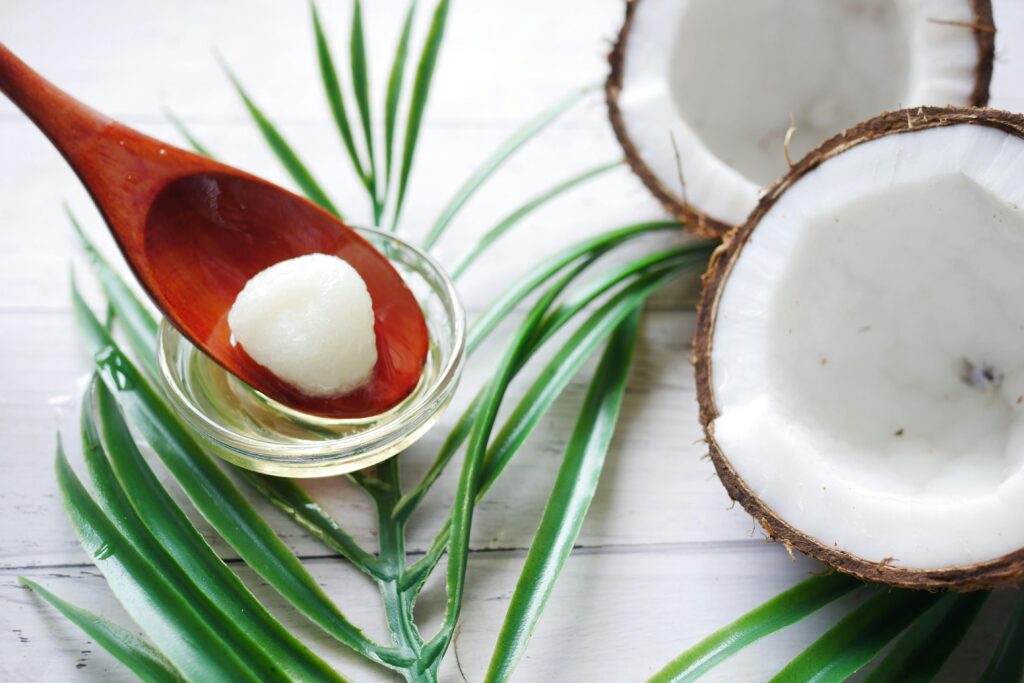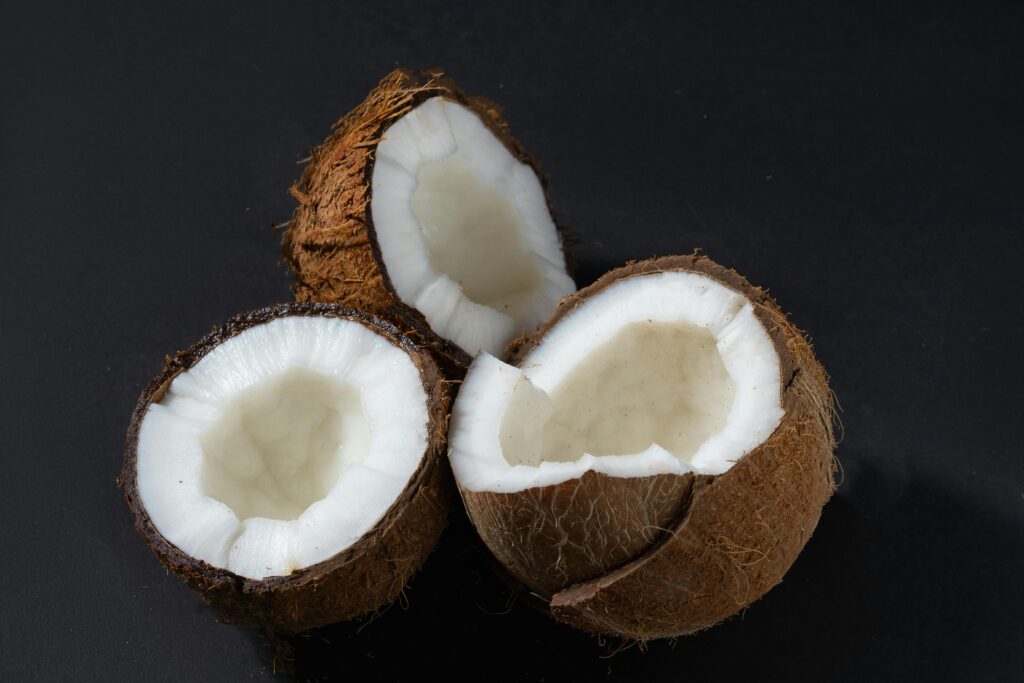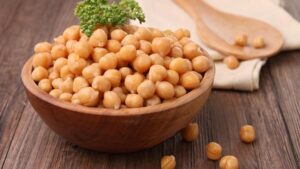What are the benefits of eating coconut?
Coconut offers a variety of benefits, ranging from its culinary uses to its potential health advantages. It’s important to note that while coconut offers many potential health benefits, moderation is key, especially when it comes to consuming coconut oil due to its high calorie and saturated fat content. As with any dietary change or supplement, it’s advisable to consult with a healthcare professional for personalized advice.Here are some of the benefits associated with coconut.

Nutritional Value: Coconut is rich in vitamins, minerals, and healthy fats. It contains significant amounts of manganese, copper, iron, and selenium. It also provides medium-chain triglycerides (MCTs), a type of fat that is easily metabolized by the body and can provide quick energy.
Heart Health: Some studies suggest that the MCTs found in coconut may help improve heart health by raising levels of HDL (good) cholesterol and lowering levels of LDL (bad) cholesterol.
Weight Management: Because MCTs are efficiently metabolized and can increase feelings of fullness, coconut oil and coconut products may aid in weight management by helping to control appetite and promote satiety.
Skin and Hair Care: Coconut oil is a popular ingredient in skincare and haircare products due to its moisturizing properties. It can help hydrate the skin, reduce inflammation, and improve the overall health of hair.
Antimicrobial Properties: Coconut contains lauric acid, which has antimicrobial properties. Lauric acid and its derivative, monolaurin, may help fight off harmful bacteria, viruses, and fungi.
Digestive Health: The fiber content in coconut can support digestive health by promoting regular bowel movements and preventing constipation. Additionally, some people find that coconut products, such as coconut water or coconut kefir, can help maintain a healthy balance of gut bacteria.
Blood Sugar Regulation: Some research suggests that consuming coconut products, particularly coconut oil, may help improve insulin sensitivity and blood sugar control in individuals with diabetes or those at risk of developing diabetes.
Bone Health: Coconut is a good source of manganese, a mineral that plays a role in bone health. Adequate manganese intake may help prevent osteoporosis and reduce the risk of fractures.
Brain Health: MCTs found in coconut oil may have potential benefits for brain health. Some studies indicate that MCTs can provide an alternative energy source for the brain and may be beneficial for individuals with certain neurological conditions, such as Alzheimer’s disease.
Immune Support: The antimicrobial properties of coconut, particularly its content of lauric acid, may help support the immune system by combating pathogens and supporting overall immune function.
Gluten-Free and Vegan: Dry coconut is naturally gluten-free and vegan, making it suitable for individuals with gluten sensitivities or dietary restrictions.
Portable Snack: Dry coconut makes a convenient, portable snack that can be enjoyed on its own or mixed with nuts, seeds, and dried fruit for a satisfying trail mix. It provides a source of energy and nutrients to fuel your day. Overall, dry coconut is a versatile and nutritious ingredient that can be enjoyed in a variety of ways. Whether added to recipes for flavor and texture or enjoyed as a convenient snack, dry coconut offers several benefits for health and culinary enjoyment.

Coconut water is the clear liquid found inside young, green coconuts. It’s a natural source of hydration and is often touted for its health benefits. Not only is it refreshing, but it’s also low in calories and packed with electrolytes like potassium, sodium, and magnesium, making it a popular choice for replenishing fluids after exercise or during hot weather. Some people enjoy its slightly sweet taste, while others find it bland or even dislike it. Overall, it’s a healthy beverage option, but like anything, moderation is key.






